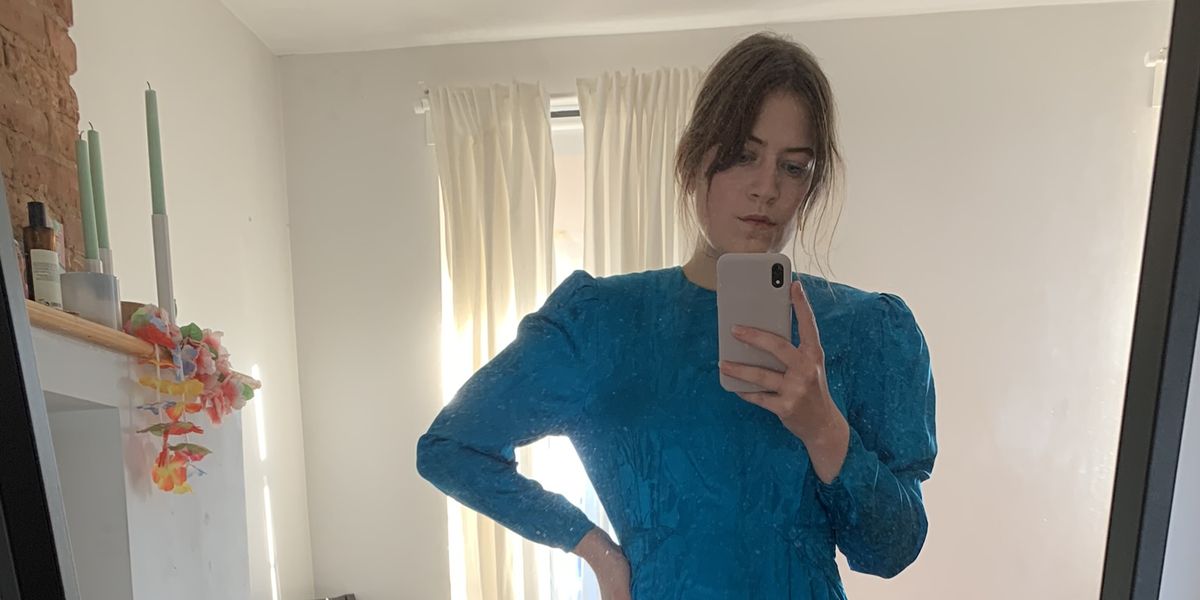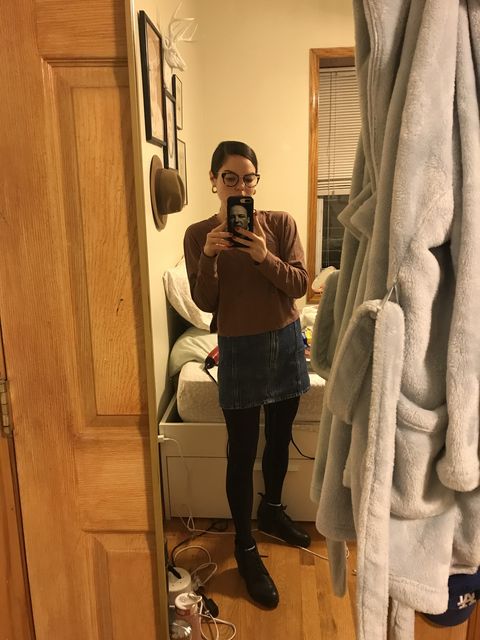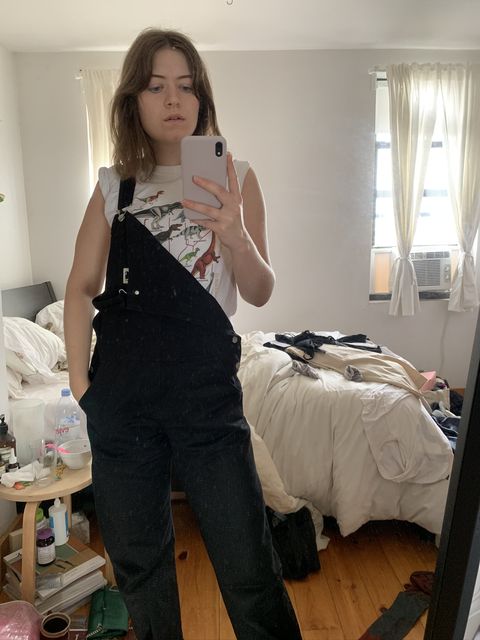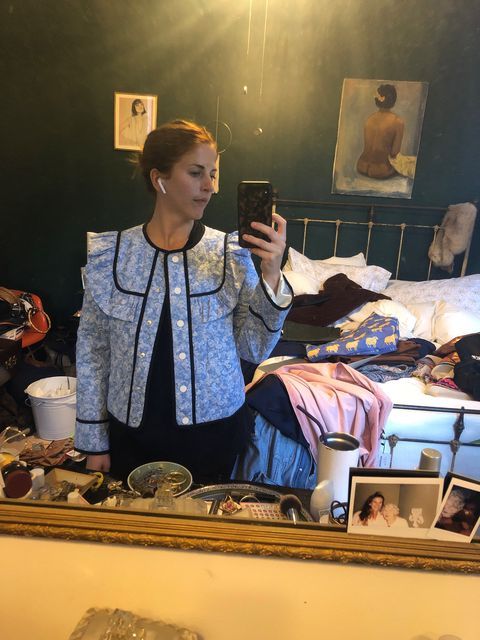Last week Marie Kondo, the woman who taught us all to throw things away that don’t spark joy, announced that she was starting a Goop-like lifestyle site that would sell—wait for it—things for our homes. (One of the storage containers on her site is $45; a tea container is $200.) But Kondo’s timing is actually kind of perfect—stylish women are all about stuff right now. Just look at their Instagram feeds, where they’re posting selfies surrounded by piles of tried-on clothing, empty takeout containers, and all kinds of medicine cabinet staples.
“I literally have a ketchup bottle on my nightstand right now,” says Taylor Trudon, 30, a writer in Brooklyn who calls herself the anti-Marie Kondo. She’s posted outfit selfies with water bottles littering the floor and tangles of cords in plain view. “People aren’t interested in seeing this perfectly curated grid. It’s about giving yourself permission to be a little bit more human.”
This messiness is perhaps an extension of the end of the Instagram aesthetic as explained by Taylor Lorenz in The Atlantic last April. Increasingly, influencers’ usual hallmarks—barrel-curled hair; multi-colored mural backdrops; perfectly styled breakfast bowls; The Museum of Ice Cream—is being replaced with more authentic, unfiltered material, like Stories that show off acne, and vacation photos sans-filters.
“Most people just want honesty now, whether it’s about your messy room, messy brain, or messy life,” says Remy Kassimir, 30, a New York-based comedian and podcaster. “Everyone just wants to see it so they can feel normal, too.” She also says taking a snap in her cluttered room is a matter of convenience; there’s no point in cleaning her entire space just to take a selfie: “I look good, why does the room need to?”
According to Amaro P., 27, from California, it’s more about taking advantage of a confident moment regardless of what your house looks like. “I was just happy about my new shirt and felt good about myself that day, so I took a selfie,” she explains of the above photo. Samantha Chard, 23, from London Ontario puts it thusly: “My room is imperfect. My life is imperfect. But that’s what makes it perfectly me.”
As a rule, the only people who live in a Martha Stewart-styled world are, well, Martha Stewart. “I think the vast majority of people usually have some stuff laying around,” says Emma Wooley, 25, a fashion publicist who lives in Brooklyn and posts selfies standing in front of stacks of books, some laundry, and a fully-loaded nightstand. “It’s nice when you go to your other adult friends’ homes and you see like a healthy amount of clutter and you’re like, ‘Okay, I’m not gonna berate myself because I was home for one non-sleeping hour this week, and I didn’t feel like hanging up all of my clothes again.’”
She even uses those photos on her dating profiles. “I posted a selfie on Hinge, and this guy responded, ‘Glad to see you’re taking your vitamins’ because I have them on my bedside table,” she says. “I was like, ‘Whoa, people are like looking at every single thing, but also whatever. It is what it is.’”
The more that women broadcast an unfiltered glimpse into their lives, the more the idea of Instagram perfection dies. We’re almost to the point that we don’t even notice the pile of shoes or empty coffee cups anymore. Some women say it already doesn’t register. “I don’t notice clutter is there until I take the picture and then I’m like, Oh shit, there’s stuff everywhere,” says Kelci Nienhuis, 31, who works in fashion in Long Island City. But still, she takes a “bless this mess” attitude. “I’m a person who’s highly sentimental about things like a movie ticket and notes I’ve been sent in the mail. I want to keep that stuff.”
Plus coming clean publicly about your mess is sort of liberating. “It’s bold to be a person with a messy bedroom who is not afraid to show it off,” says Sarah Knight, author of the Kondo-inspired The Life-Changing Magic of Not Giving a F*ck. “We’ve all got to stop devoting so much brainpower to other people’s opinions about how we live our lives. Releasing yourself from that societal pressure to conform to what ‘Insta-ready bedrooms should look like,’ will free up so much more time, energy, and money to spend on things that you enjoy.”



